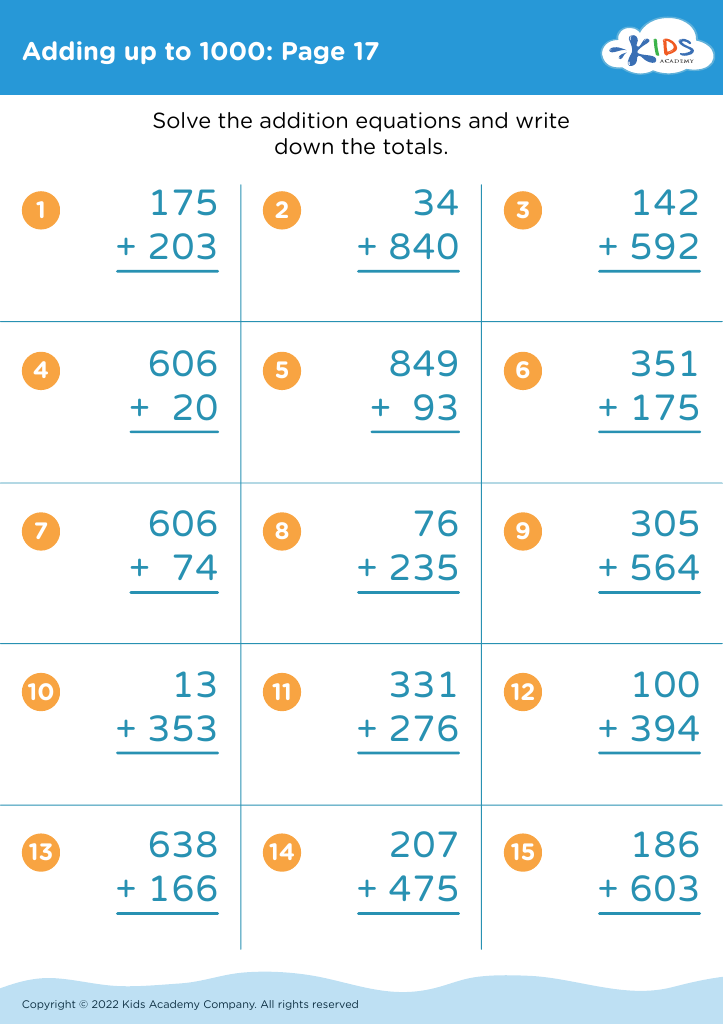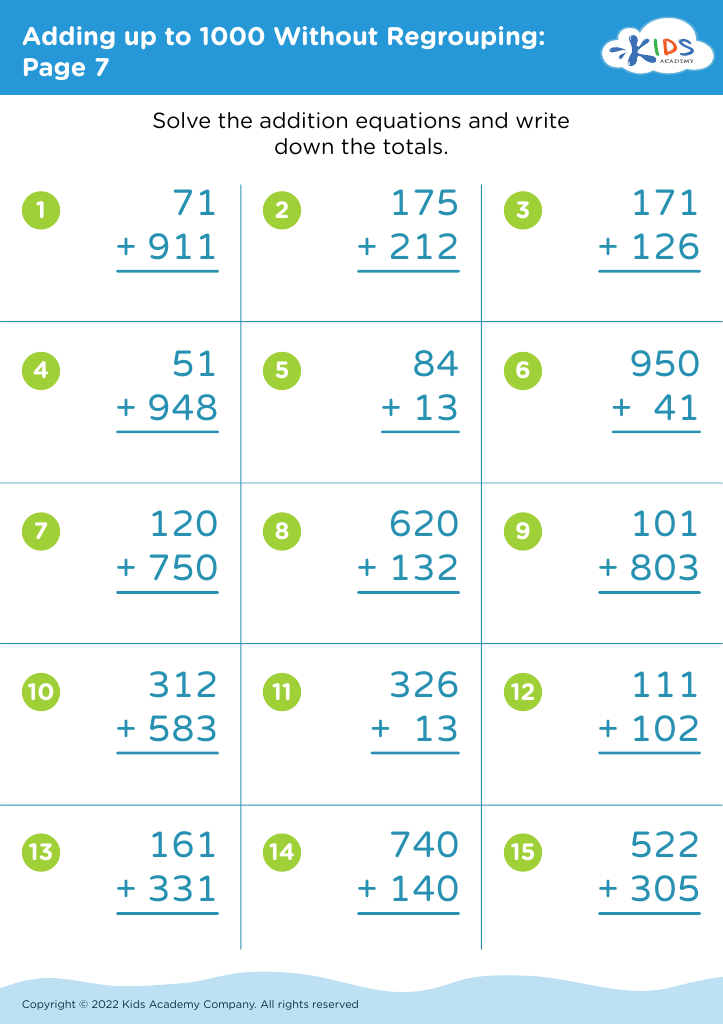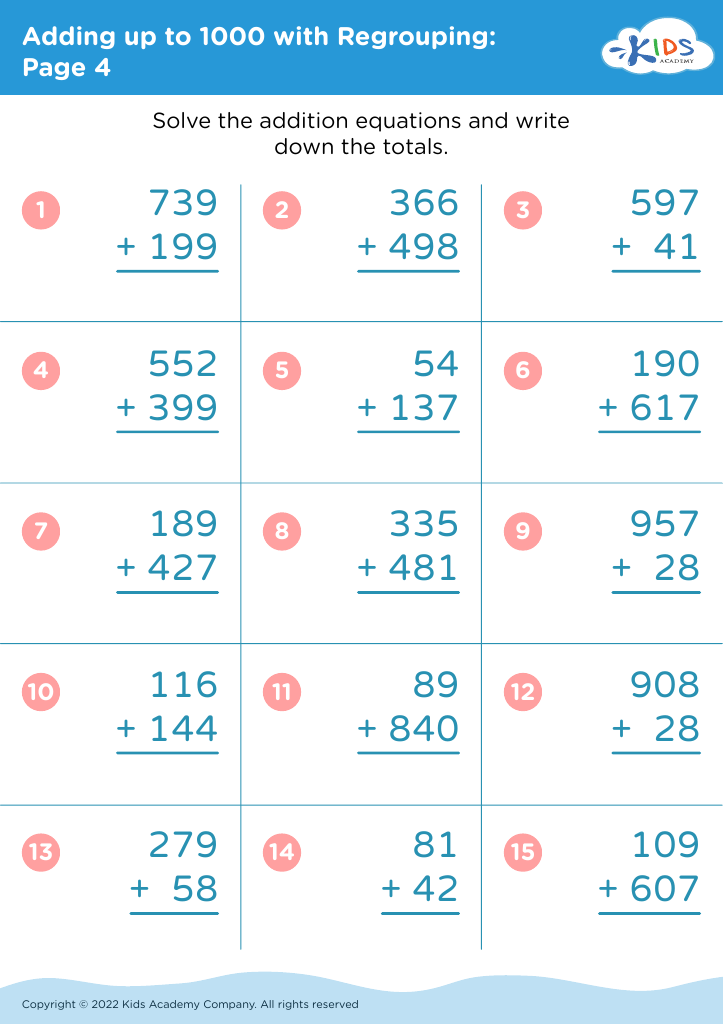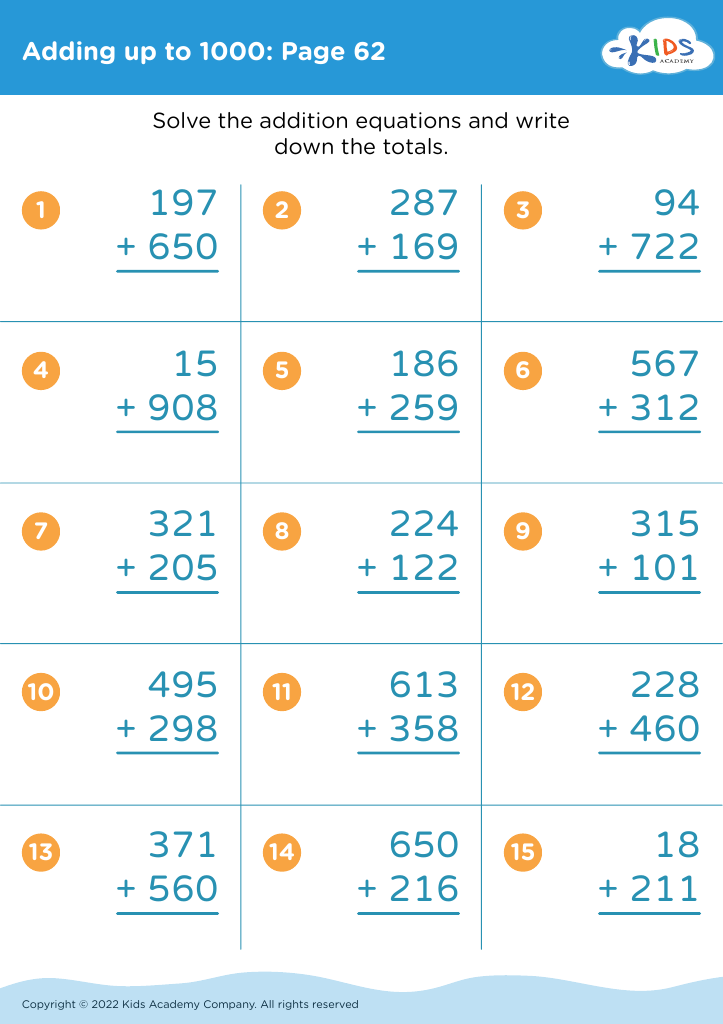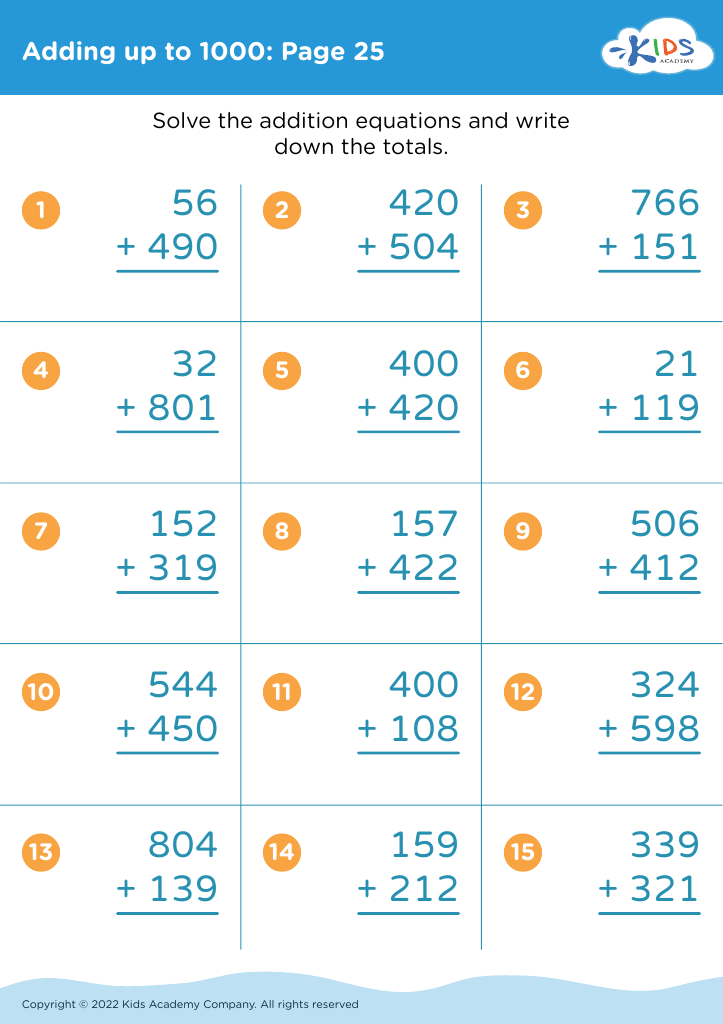Fraction comparison Adding up to 1000 Worksheets for Ages 3-9
13 filtered results
-
From - To
Boost your child's math skills with our engaging "Fraction Comparison Adding up to 1000 Worksheets" designed for ages 3-9. Our expertly crafted worksheets help young learners understand fractions, improve number sense, and reinforce addition skills. Perfect for both classroom use and home learning, these activities make complex topics accessible and fun. With colorful visuals and interactive problems, children will compare, contrast, and add fractions seamlessly. Get them started on a path to math excellence today! Unlock the potential of early math education with our effective and educational fraction comparison worksheets. Explore our resources now!
Understanding fractions and large number comparisons, such as adding up to 1,000, is vital for young children aged 3-9 as it lays a strong mathematical foundation. Here's why parents and teachers should care:
-
Early Math Fluency: Engaging with fractions and larger numbers early on ensures that children become comfortable with complex mathematical concepts. This fluency is crucial as it affects their future learning and academic success in math-related subjects.
-
Problem-Solving Skills: Comparing fractions and large numbers enhances analytical and critical thinking. When children break down and understand these concepts, they develop problem-solving skills that are transferable across all disciplines.
-
Real-Life Applications: Children frequently encounter situations where they need to use fractions or larger numbers, such as cooking (recipes) or sharing items (like toys or candy). Mastering these skills enables practical, everyday calculations and decisions.
-
Confidence Building: Early success in math brings confidence. When children understand these fundamental concepts, they gain a sense of achievement, encouraging a positive attitude towards learning and reducing math anxiety as they progress through school.
-
Educational Standards: Aligning with educational standards like Phases 1 & 2 of Common Core, these skills are benchmarks in early childhood education. Parents and teachers focusing on these areas help ensure children meet expected milestones and are well-prepared for more advanced math.
Investing time in this foundational math comprehension not only supports academic success but also equips children with essential life skills, boosting their overall cognitive development.


